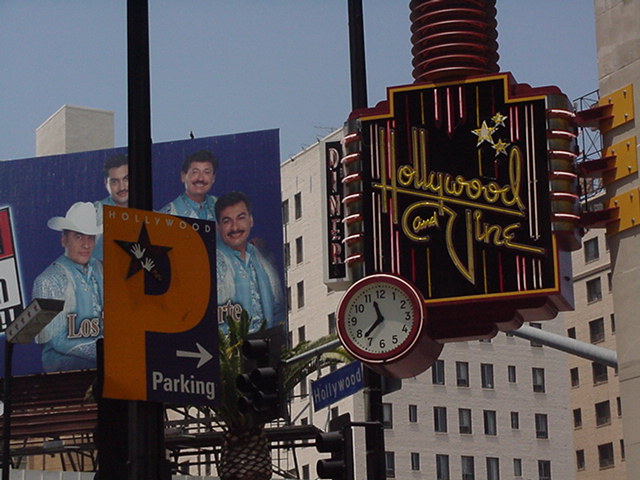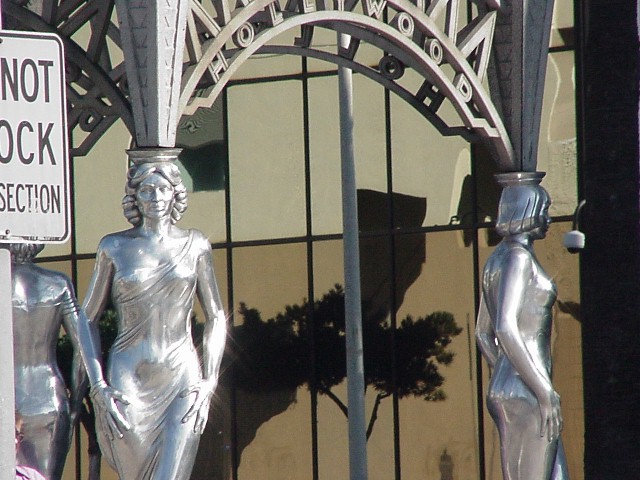Topic: The Culture
Philosophy: True Lies
Over at The Chronicle Review - a publication of The Chronicle of Higher Education, Michael Lynch, an associate professor of philosophy at the University of Connecticut, has a curious little essay. This essay is adapted from his book True to Life: Why Truth Matters, to be published in October by the MIT Press.
What is this about?
See Who Cares About the Truth? from the issue dated September 10, 2004
Much of this is a critique of an earlier essay by Stanley Fish that argued, as Lynch summarizes, that not only is objective truth an illusion, but even worrying about the nature of truth in the first place is a waste of time. In short, debating an abstract idea like truth is like debating whether Ted Williams was a better pure hitter than Hank Aaron: amusing, but irrelevant to today's game. Yeah well, I would argue that the late Roberto Clemente was also.... Nope. Can't go there.
Lynch of course runs down the problem with the reasons we went to war in Iraq, and has a problem with folks, the majority now, who really don't care that much whether what we were told was true or false. The reason, or reasons, we went to war, turned out to be based on what was not true, and now, if you are following the opinion polls, no one much cares -
Well, we are, after all, a practical, pragmatic people. And it does sort of depend on where you want to go. Whatever works.... the belief that Iraq was an imminent nuclear threat had rallied us together and provided an easy justification to doubters of the nobility of our cause. So what if it wasn't really true? To many, it seemed na?ve to worry about something as abstract as the truth or falsity of our claims when we could concern ourselves with the things that really mattered -- such as protecting ourselves from terrorism and ensuring our access to oil. To paraphrase Nietzsche, the truth may be good, but why not sometimes take untruth if it gets you where you want to go?
But Lynch, the philosopher, presents the classic classroom questions -
1.) At the end of the day, is it always better to believe and speak the truth?
2.) Does the truth itself really matter?
And he admits most Americans would look at these two questions "with a jaundiced eye." He thinks we are a little cynical about the value of truth. (And who liked those late afternoon classes where you were forced to deal with "deep questions" when you just wanted to get your credits and move on?)
Who cares?
You would think the conservative right cares, but not exactly... (my emphases) -
Yeah, if you can see it. Sometimes it's hard to see it.William J. Bennett, for example, in his book last year, Why We Fight: Moral Clarity and the War on Terrorism, laments the profusion of what he calls "an easygoing" relativism. Longing for the days when children were instructed to appreciate the "superior goodness of the American way of life," he writes: "If the message was sometimes overdone, or sometimes sugarcoated, it was a message backed by the record of history and by the evidence of even a child's senses." In the halcyon days of old, when the relativists had yet to scale the garden wall, the truth was so clear that it could be grasped by even a child. That is the sort of truth Bennett seems to think really matters. To care about objective truth is to care about what is simple and ideologically certain.
As a defense of the value of truth, that is self-defeating. An unswerving allegiance to what you believe isn't a sign that you care about truth. It is a sign of dogmatism. Caring about truth does not mean never having to admit you are wrong. On the contrary, caring about truth means that you have to be open to the possibility that your own beliefs are mistaken. It is a consequence of the very idea of objective truth. True beliefs are those that portray the world as it is and not as we hope, fear, or wish it to be. If truth is objective, believing doesn't make it so; and even our most deeply felt opinions could turn out to be wrong. That is something that Bennett -- and the current administration, for that matter -- would do well to remember. It is not a virtue to hold fast to one's views in face of the facts.
Thus some writers, like Fish, say that since faith in the absolute certainties of old is na?ve, truth is without value. Others, like Bennett, argue that since truth has value, we had better get busy rememorizing its ancient dogmas. But the implicit assumption of both views is that the only truth worth valuing is Absolute Certain Truth. That is a mistake. We needn't dress truth up with capital letters to make it worth wanting; plain unadorned truth is valuable enough.
And it is easy to be cynical, like the Fish fellow. But Lynch says this is confused, and further, that philosophical debates over truth matter because truth and its pursuit are politically important.
Politically important? Really?
Lynch argues this -
Of course this flies in the face of what my conservative friends say - that when you assume personal responsibility for your life and adopt the right attitude, that what you want to happen will happen, you will succeed at anything you try.There are three simple reasons to think that truth is politically valuable. The first concerns the very point of even having the concept. At root, we distinguish truth from falsity because we need a way of distinguishing right answers from wrong ones. In particular, and as the debacle over weapons of mass destruction in Iraq clearly illustrates, we need a way of distinguishing between beliefs for which we have some partial evidence, or that are widely accepted by the community, or that fit our political ambitions, and those that actually end up being right.
... We think it is good to have some evidence for our views because we think that beliefs that are based on evidence are more likely to be true. We criticize people who engage in wishful thinking because wishful thinking often leads to believing falsehoods. In short, the primary point of having a concept of truth is that we need a basic norm for appraising and evaluating our beliefs and claims about the world. We need a way of sorting beliefs and assertions into those that are correct (or at least heading in that direction) and those that are incorrect.
Really? The line between having a positive attitude and delusional wishful thinking is, it seems to some of us, quite hazy. Saying that, of course, makes us defeatists and losers - the kind of people who do contingency planning for worst case scenarios and try to imagine a range of consequences for actions, and not just assume the most desirable consequences, and only those, will naturally occur.
But what is the truth about what will happen? Before the war critics were full of warnings, and the administration said no, they themselves had the truth - we would be greeted as liberators, with flowers and sweets and all that. Thus the critics were wrong, as their warnings were not based on any truths, but only on worries and what-if conjectures.
But neither the warnings nor the "wishful thinking" (positive attitude) was "true" - as we hadn't invaded and taken over Iraq. All we had was opinion, and smattering of "facts" - like those Colin Powell presented at the UN to prove we had to act immediately. The world was asked to decide which opinion was more grounded in truth - but it was all still opinion.
And we skeptics unreasonable want rather substantial evidence.
So, consider this. As a default opinion should we simply (that word was selected carefully) trust our leaders? We did have the faith to elect them (sort of) after all. That, in fact, was an act of faith, more than anything else. There was no way to be certain how the new leaders would react to events, and the events over the last few years were not exactly something anyone really anticipated.
Here is Lynch's "thought experiment" on that idea -
Which is right where we find ourselves now, of course. Listen to the defense of the current administration.Now imagine a society in which everyone believes that what makes an opinion true is whether it is held by those in power. So if the authorities say that black people are inferior to white people, or love is hate, or war is peace, then the citizens sincerely believe that is true. Such a society lacks something, to say the least. In particular, its people misunderstand truth, and the nature of their misunderstanding undermines the very point of even having the concept. Social criticism often involves expressing disagreement with those in power -- saying that their views on some matter are mistaken. But a member of our little society doesn't believe that the authorities can be mistaken. In order to believe that, they would have to be able to think that what the authorities say is incorrect. But their understanding of what correctness is rules out such a possibility. So criticism -- disagreement with those in power -- is, practically speaking, impossible.
Lynch of course spends some time on George Orwell's 1984. But he says we read it wrongly.
There is a lot more detail, but that's the general idea - as Lynch puts it, just having the concept of objective truth opens up a certain possibility: It allows us to think that something might be correct even if those in power disagree.... The most terrifying aspect of Orwell's Ministry of Truth isn't its ability to get people to keep people from speaking their minds, or even to believe lies; it is its success at getting them to give up on the idea of truth altogether. ... Eliminate the very idea of right and wrong independent of what the government says, and you eliminate not just dissent -- you eliminate the very possibility of dissent.
But is that what we want while we're waging this war on terror, this war to eliminate evildoers? Is that wise, or useful? Discuss in a three-page essay, due next Wednesday.
No? Then consider this. You fundamental rights are at issue here - so you'd better not say it's all opinion and there's no real truth -
Oh really? This fellow should wake up. We bought into that, willingly.The second reason truth is politically important is that one of our society's most basic political concepts -- that of a fundamental right -- presupposes the idea of objective truth. A fundamental right is different from a right that is granted merely as a matter of social policy. Policy rights -- such as the right of a police officer to carry a concealed weapon -- are justified because they are means to a worthwhile social goal, like public safety. Fundamental rights, on the other hand, are a matter of principle, as the philosopher Ronald Dworkin has famously put it in a book by that title. They aren't justified because they are a means to valuable social goals; fundamental rights are justified because they are a necessary component of basic respect due to all people. Fundamental rights, therefore, override other political concerns. You can't justifiably lose your right to privacy, for example, just because the attorney general suddenly decides we would all be less vulnerable to terrorism if the government knew what everyone was reading, buying, and saying. The whole point of having a fundamental or, as it is often put, "human right," is that it can't justifiably be taken away just because a government suddenly decides it would be in our interest to do so.
But is this true?
Now imagine Pontius Pilate washing his hands. "I am innocent of this man's blood. Look to it yourselves." Matthew 27:24It follows that a necessary condition for fundamental rights is a distinction between what the government -- in the wide sense of the term -- says is so and what is true. That is, in order for me to understand that I have fundamental rights, it must be possible for me to have the following thought: that even though everyone else in my community thinks that, for example, same-sex marriages should be outlawed, people of the same sex still have a right to be married. But I couldn't have that thought unless I was able to entertain the idea that believing doesn't make things so, that there is something that my thoughts can respond to other than the views of my fellow citizens, powerful or not. The very concept of a fundamental right presupposes the concept of truth. Take-home lesson: If you care about your rights, you had better care about truth.
Lynch adds the obvious too -
Except we welcome tyranny, as it makes us feel more safe and secure, and there are so many bad guys out there. They want to kill us all. Truth can wait for the days when they are all dead?The conceptual connection between truth and rights reveals the third and most obvious reason truth has political value. It is vital that a government tell its citizens the truth -- whether it be about Iraq's capacities for producing weapons of mass destruction or high-ranking officials' ties to corporate interests. That is because governmental transparency and freedom of information are the first defenses against tyranny. The less a government feels the need to be truthful, the more prone it is to try and get away with doing what wouldn't be approved by its citizens in the light of day, whether that means breaking into the Watergate Hotel, bombing Cambodia, or authorizing the use of torture on prisoners. Even when they don't affect us directly, secret actions like those indirectly damage the integrity of our democracy. What you don't know can hurt you.
We are buying into that, or so the polls are telling us.
Did Bush lie, or at least hammer us into delusional wishful thinking, to have his vanity war? Maybe so. Did he lie about his service record - this week's mini-scandal? Note that no one much cares.
We don't want the truth, and find it tiresome. QED.
Posted by Alan at 17:16 PDT
|
Post Comment |
Permalink
home





